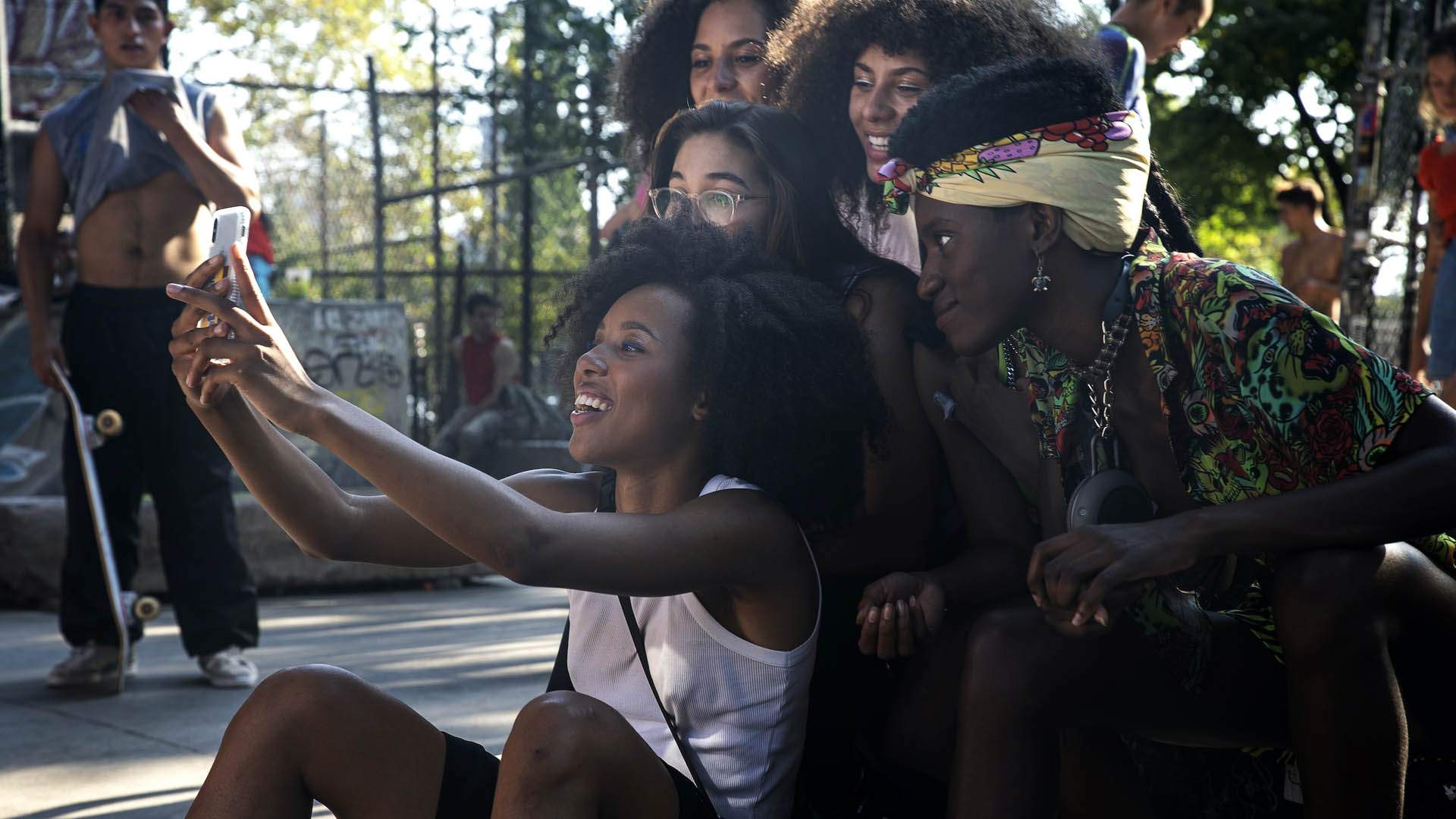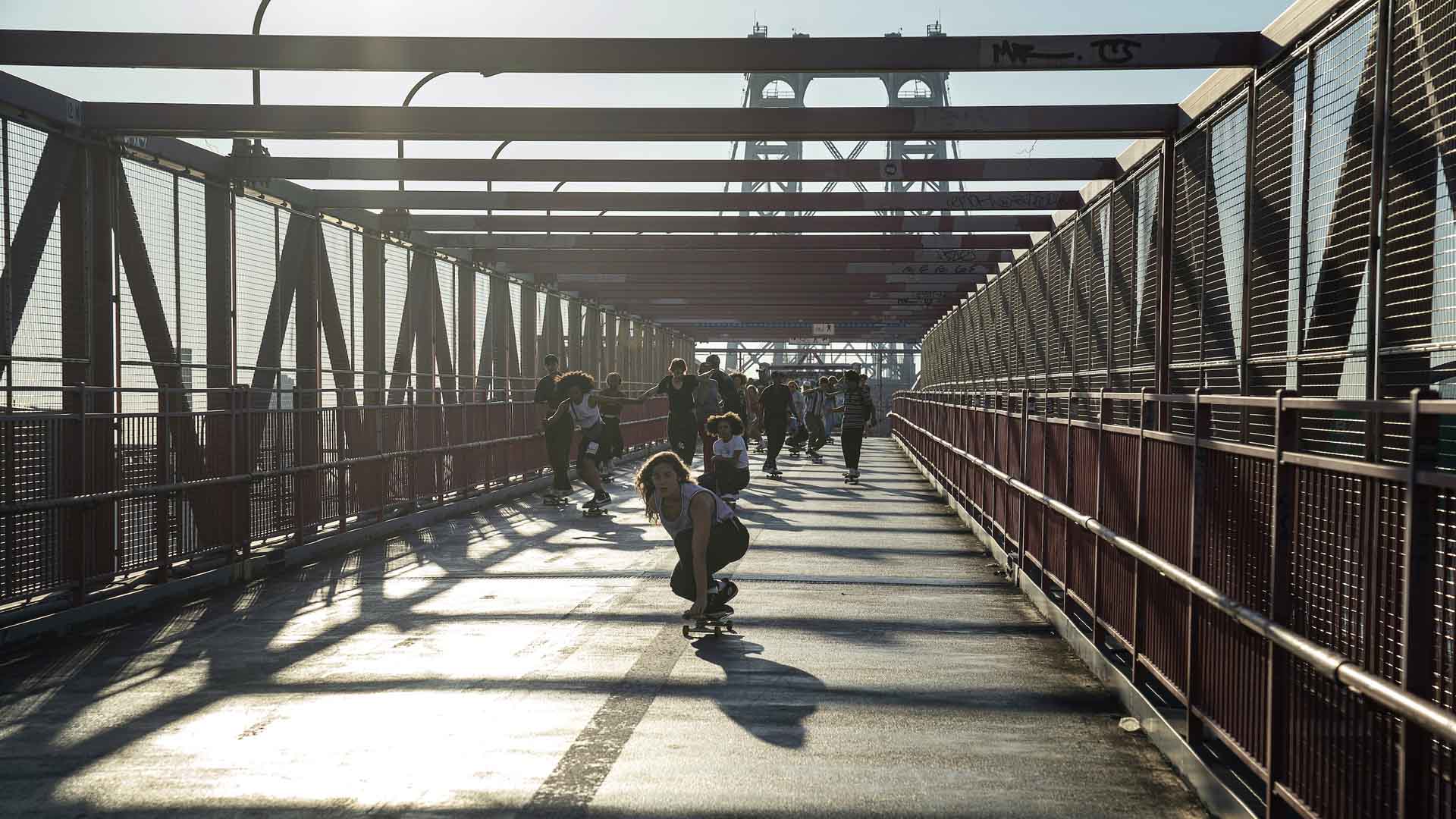HBO's 'Betty' Turns an All-Female Skateboarding Crew's Exploits Into a Must-See Hangout Session
Based on the 2018 movie ‘Skate Kitchen’, it lets viewers spend more time with its central New York teens as they ollie their way through the male-heavy skateboarding scene.
In partnership with
When a film or TV program struggles, flounders or flat-out bombs, it often gets its audience wondering exactly what the folks behind it were thinking. HBO series Betty has the opposite effect. Within minutes of starting the New York-set show's six-episode first season, it's easy to see why filmmaker Crystal Moselle wanted to tell this story — and why she wanted to not only spend her own time with its characters, but also to share their exploits with the world.
That feeling proves true even if you don't know Betty's history, because it was true of the show's predecessor as well. In 2018 film Skate Kitchen, Moselle followed five friends who spent their days ollying, kick-flipping, shredding, grinding and nose-sliding around NYC. The entire quintet was female, and the fact that they all loved to skateboard — a male-dominated pastime not just historically, but also still now — coloured their lives' many ups and downs. And, while Skate Kitchen unfurled a fictional story, it took its name from a real-life all-female skateboarding crew, used its members as the movie's stars and crafted its narrative by fictionalising their real-life experiences.
Betty brings the group's tale back to the screen, both extending and expanding it at the same time. The central young women remain the same, and the same main talent all return — Skate Kitchen's biggest name, Jaden Smith, is nowhere to be seen though — but the show tinkers with some of the details. Camille (Rachelle Vinberg) is no longer a skateboarding novice, but a girl who feels more comfortable hanging out with the guys, for instance. The dynamic between the always-outspoken, often-stoned Kirt (Nina Moran), no-nonsense vlogger Janay (Ardelia Lovelace), wealthy but weed-dealing Indigo (Ajani Russell) and shy wannabe filmmaker Honeybear (Kabrina Adams) has also been massaged, as have the specifics of each character.
You could see Betty as Moselle's attempt to bring a bit of skateboarding into her filmmaking, rather than just depicting it in front of the lens. No matter how often a skater does a manoeuvre, it's always bound to differ slightly from the last time — which is exactly the mindset that helps Betty glide away from Skate Kitchen's shadow. The two share much in common, of course. The director's eagerness to relay her characters' escapades via warm, dreamy visuals hasn't subsided, and nor has the pervasive vibe that manages to make everything within Betty's frames feel both of-the-moment and nostalgic all at once. But, with no criticism meant towards the excellent Skate Kitchen, it now plays like the teaser for Betty, in the same way that the movie itself was preceded by 2016 short film That One Day.

Story-wise, each episode of Betty sprawls and scampers as its characters do the same. The plot's main thrust often remains straightforward — Camille leaves her bag at the skate park, and Janay helps her run around town trying to find it, for example — but Moselle and her team of co-writers aren't afraid to see where every element of every story takes them. Accordingly, the show bobs and weaves back and forth between its main players, letting the mood and the moment guide each episode where it needs to. In other words, Betty not only lets its viewers tag along, but styles and structures each episode like it's a hangout session itself.
Moselle is no stranger to mining the connections between art and life. It's what drove her first feature-length film, acclaimed 2015 documentary The Wolfpack — which focused on seven home-schooled NY siblings who staged elaborate recreations of their favourite flicks because their parents would rarely let them leave the house. Viewers should watch Betty with that in mind, actually, which the TV show openly invites.
This astute and engaging series offers a window into a world that has long seemed like a dream for teenage girls. It lets the audience step inside, skate along, hang out and try it on (or imagine what might've been for those whose all-girl skateboarding crew days feel long behind them). Betty doesn't ever over-stress the point, but it knows it's doing something revolutionary. Its scenes of female-only skate sessions through the city and primary school-aged girls jumping on boards for the first time are joyous, and Camille, Kirt, Janay, Indigo and Honeybear's fight to be seen as skaters first and foremost is ferocious. Indeed, Moselle is acutely aware that she's the only one telling this tale — examining the realities that female skaters face, and also celebrating their efforts and even their existence — and she does so exceptionally well.
Check out the trailer for Betty below:
All six episodes of Betty's first season are available to stream via Binge.
Images: Alison Rosa/HBO.






